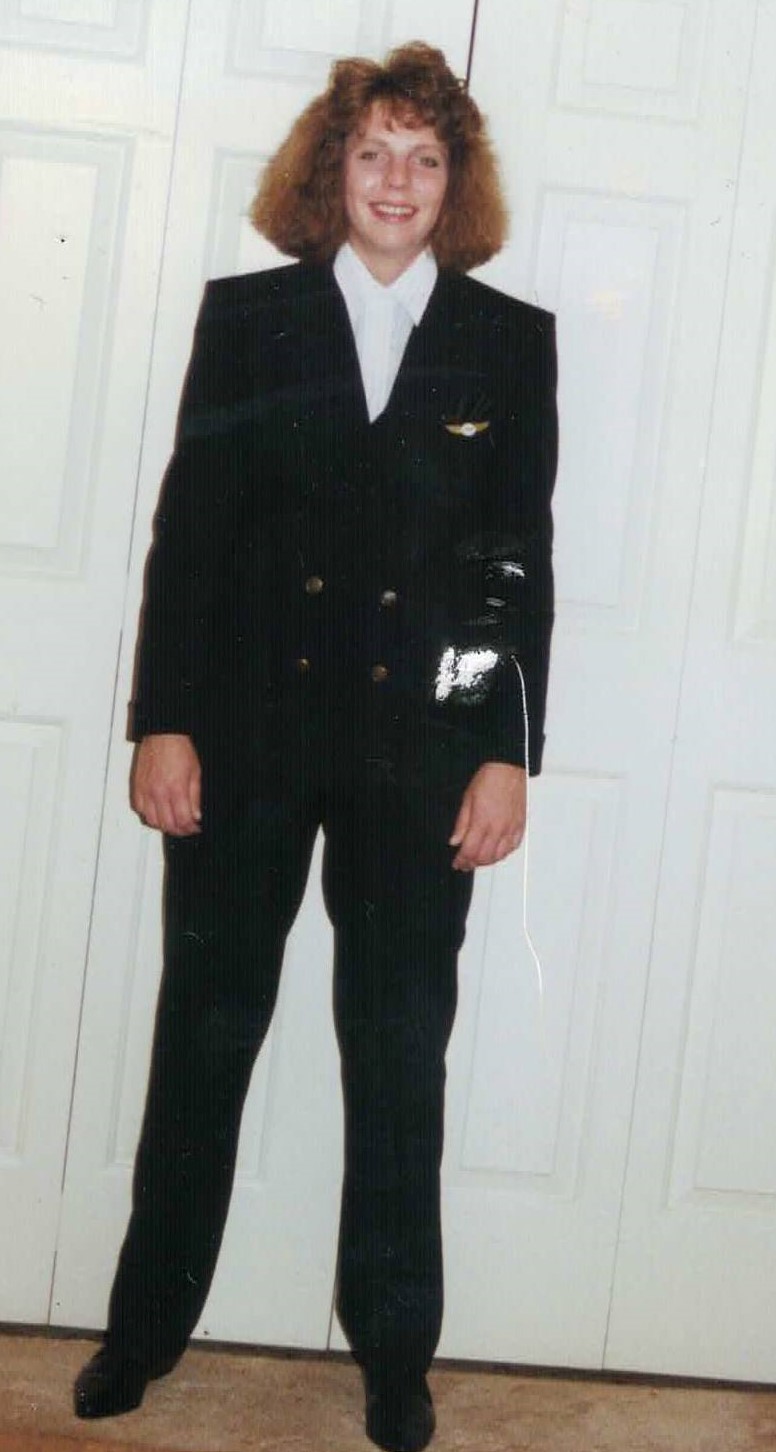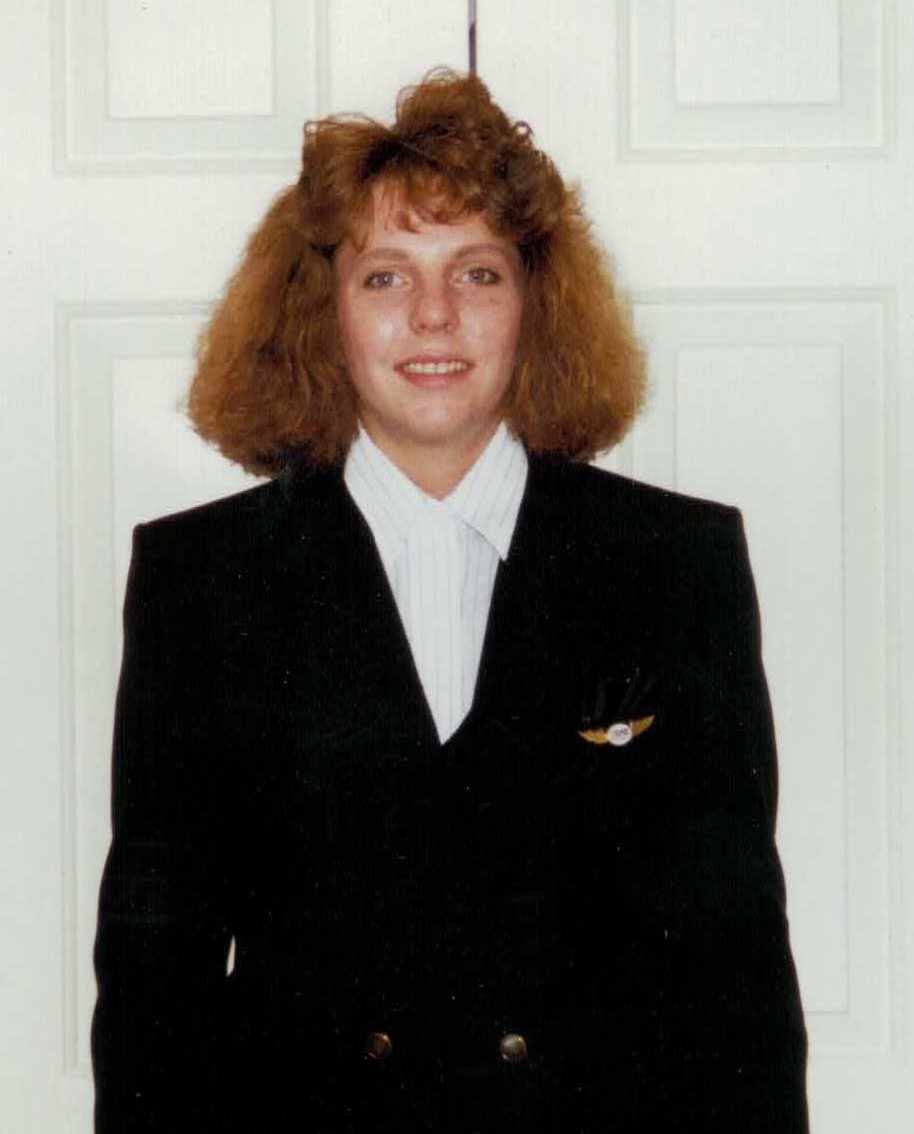“Don’t think too much, Bethie, Ok. Just don’t think too much,” Butch’s words from the driver’s seat of his Toyota as he pulled away from our father’s funeral.
Standing by the road, watching him through the car window, my sixteen-year-old brain couldn’t comprehend his message. How could I not think too much? Less than an hour ago, I watched my father laid to rest. My hero was gone, my godlike worship of him destroyed. The pedestal where I placed dad toppling with each passing minute.
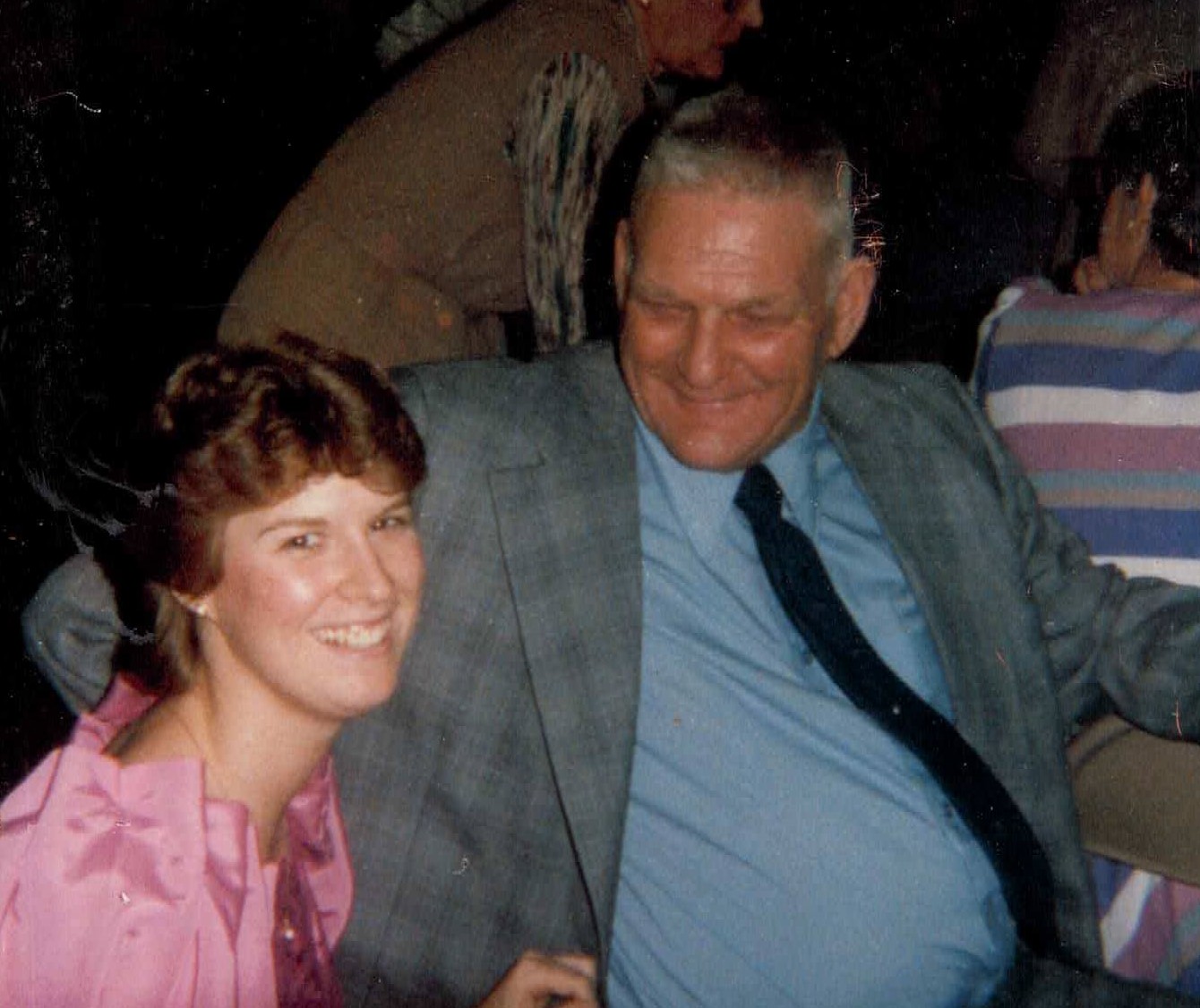
Dad and Lynn 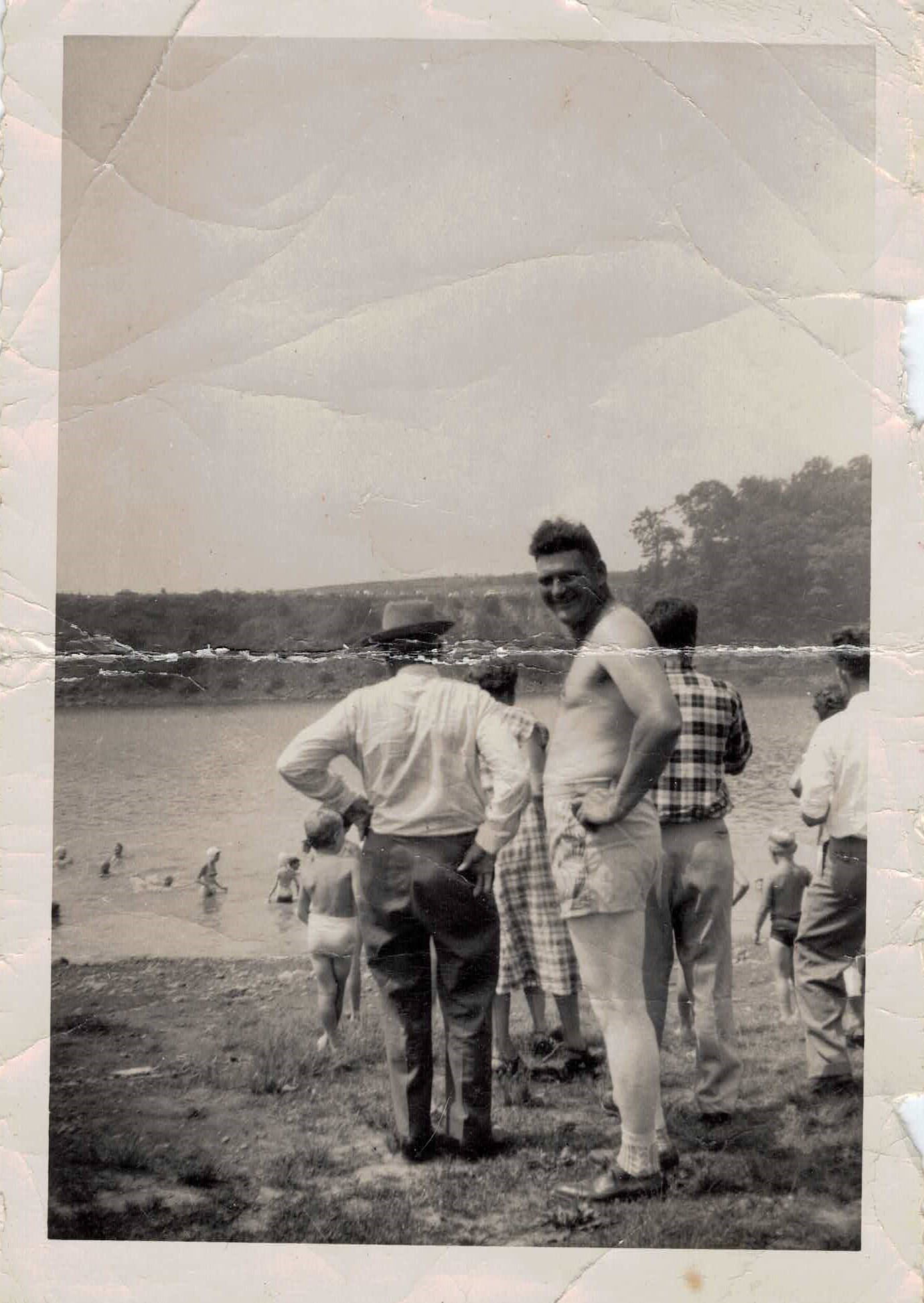
Dad, long before I was born. 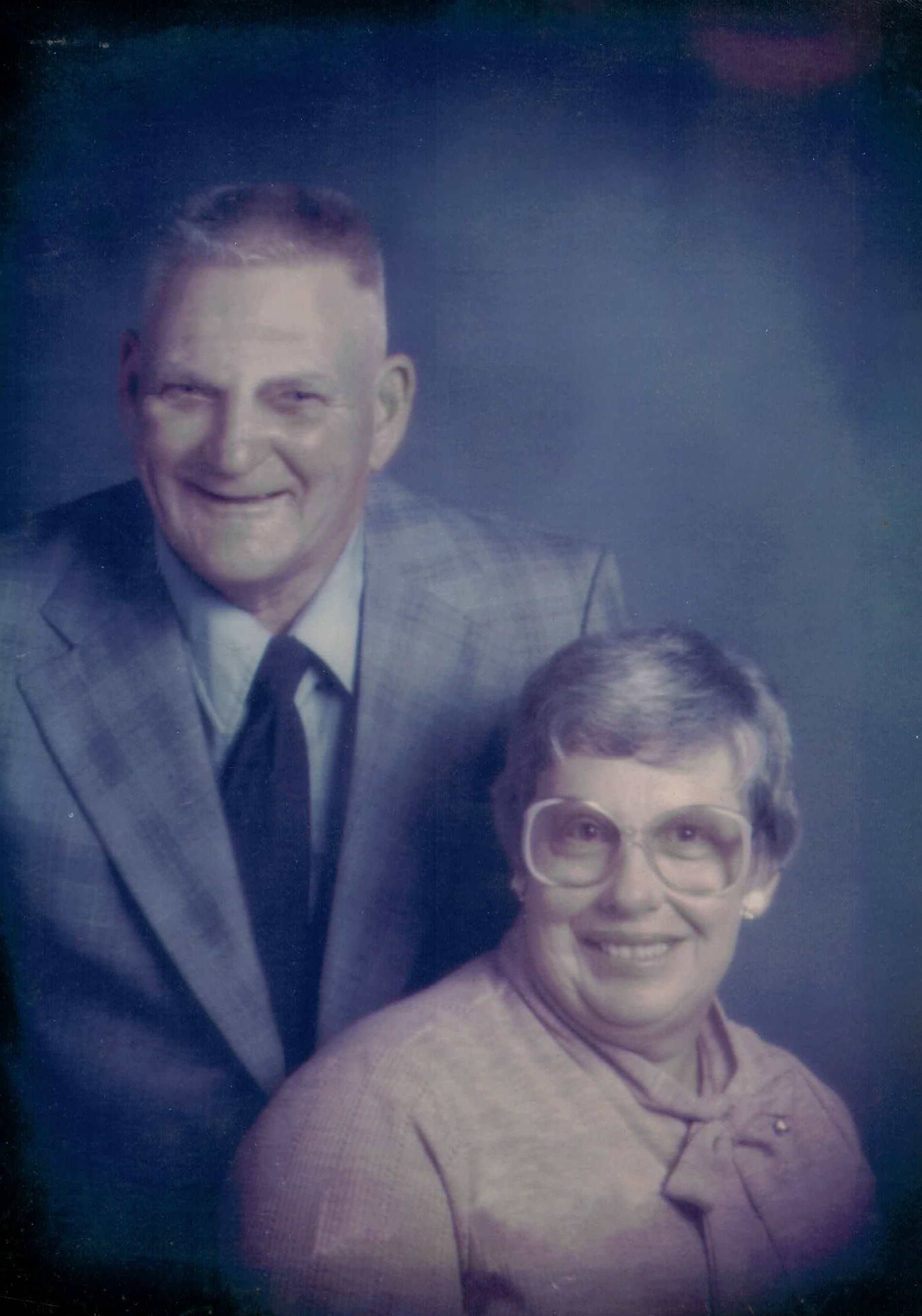
Royd and Roberta Minick 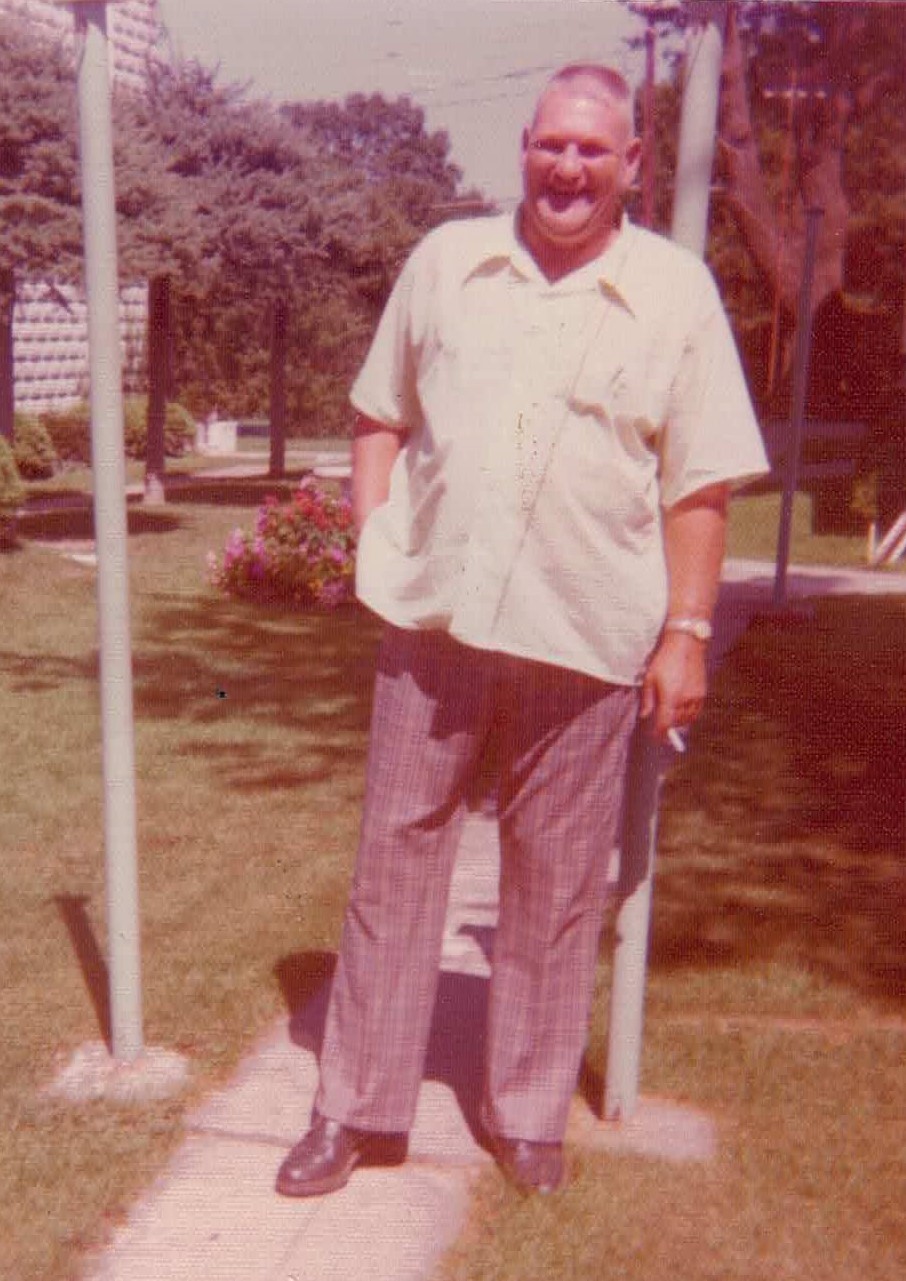
Ram Rod 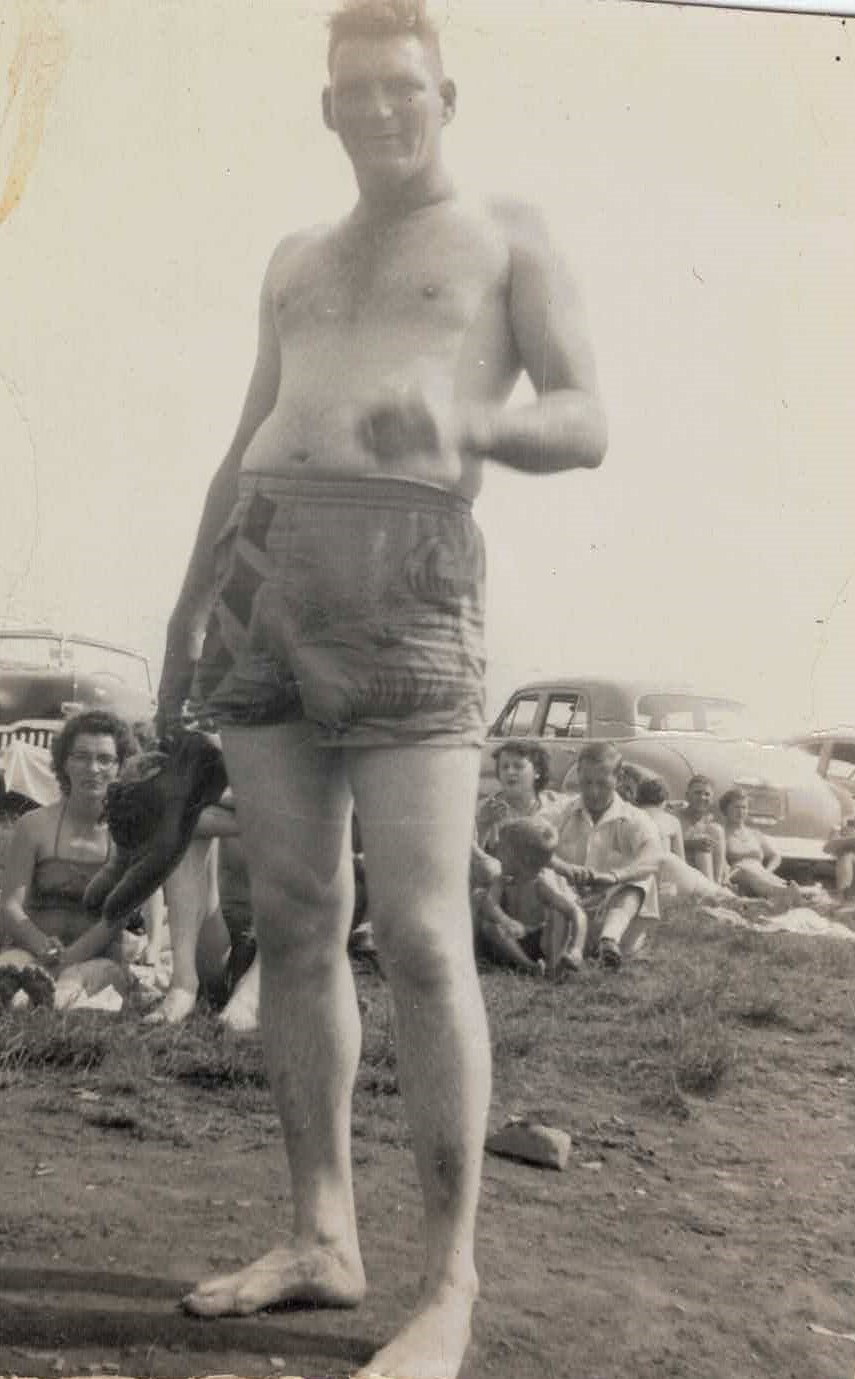
Royd
Numbly, I turned and walked back to my uncle’s house where family and friends were feasting on food, telling stories of Ram Rod, a man who seemed larger than life. But wasn’t. How desperately I wished I could drive away too. Instead, I must find a way to live without the one person I worshipped most.
Not only did I lose my father on June 14, 1986, I also lost my faith. My childlike innocence was gone. Experiencing pain so profoundly made me doubt my heavenly Father. Why would a loving God allow His children to experience such heartache? No thanks, God, I’m better off on my own. Or so I thought.
Over the next eight years, I strove passionately to “not think.” Alcohol became a welcome salve, pot its faithful companion. Numbness came with the combination of my two favorite things. After flunking out freshman year at SRU, my mother informed me, “I’m not paying for you to party!”
As if life wasn’t challenging enough, I was determined to make it harder.
Somewhere in my drunken haze, I promised my mother, “I’ll finish school. I’ll get my degree.” Living up to those words became my life mission. Working full-time to pay tuition, I managed to flunk out two more times before finally achieving my goal.
But once you accomplish your mission, then what?
“What about becoming a flight attendant?” Caroline, my Sales Director at Fort Magruder Inn, asked me. Having spent the last two years of my college career working as a front desk clerk, she took me under her wing. “My daughter works for Piedmont Airlines; I can get you contact information. I really don’t want to see you working in hotels and restaurants the rest of your life. It’s not the life you think it is. Please, won’t you give it a try?”
And so, when she gave me the Vice-President’s address, I sent him my resume. Within a week, I was scheduled for an interview. Realizing I was entering the grown-up world, I knew I needed to give up weed. Drug testing comes with adulthood. On my last day of classes at Christopher Newport University, I threw away my one-hitter, determined to begin engaging in life fully cognizant.
“Yes, I think we can get you on this flight,” the ticket agent said when I checked in for my plane.
“What do you mean, “think?” Piedmont sent me a ticket; doesn’t that mean I already have a seat?” I replied.
Smiling kindly, the ticket agent explained I was “Non-Rev,” short for non-revenue. In the airline industry in the mid-’90s, you could fly free as long as a seat was open. If paying customers booked the seat, you were out of luck. Having never flown before, how was I to know?
Arriving safely in D.C., my anxiety level was high. With time to kill between my connecting flight, I found myself emptying the contents of my stomach into the public restroom. Dressed to the nines in a short skirt, jacket, and heels, not the most ladylike position to find oneself. And then things got worse.
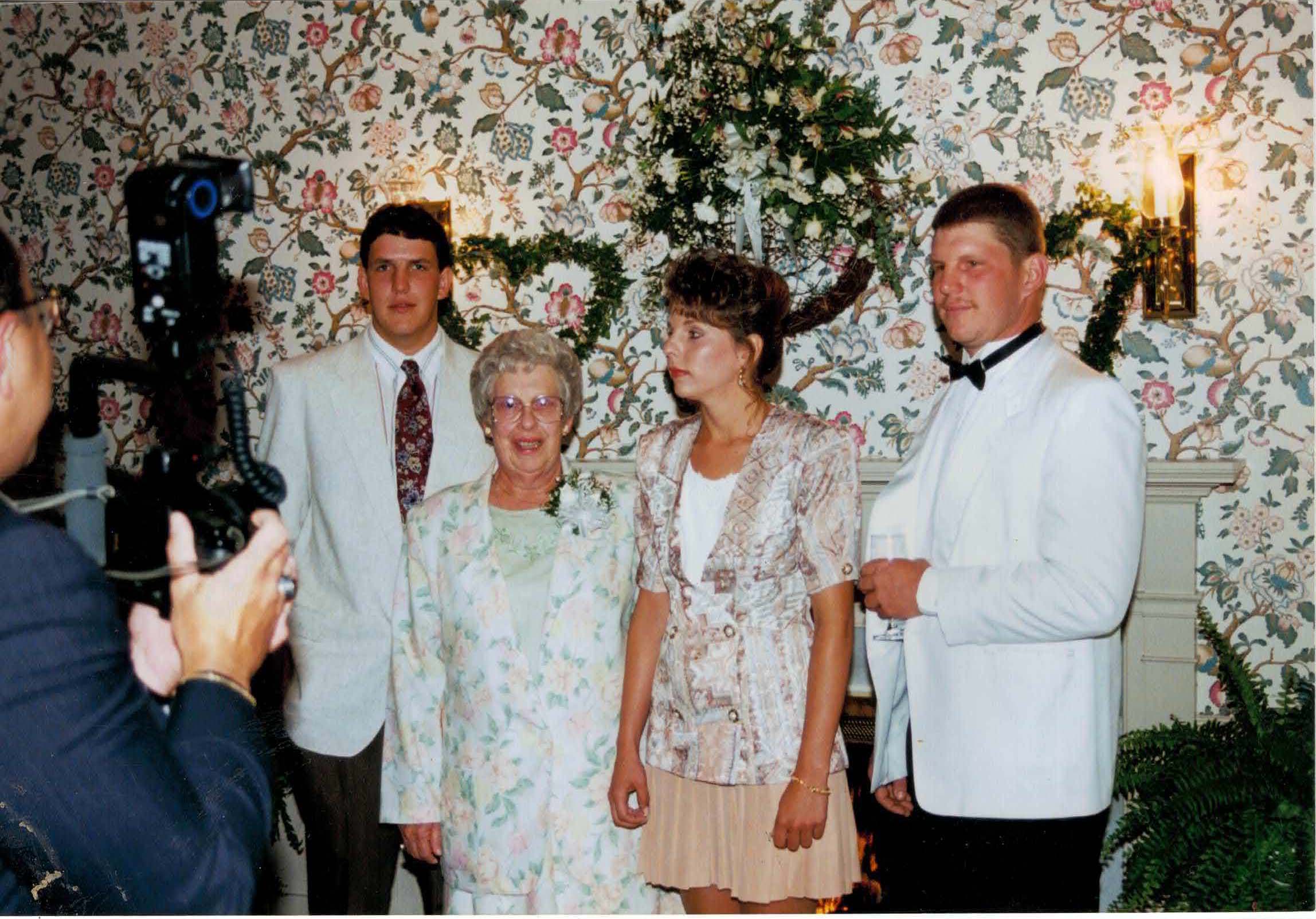
“All flights are canceled” rang over the PA system of Reagan National. Thunderstorms settling in over the city grounded all planes. Panicked and broke, I called mom.
“Find a hotel. I’ll deposit money in your account to cover the cost. You’re going to be ok.” Easy for mom to say, she wasn’t the one stuck in the current murder capital of the country alone. But what choice did I have?
How I found myself at the Marriott, I don’t recall. But I remember the relief of closing the door of my room, locking the deadbolt, falling into bed exhausted. Alone and scared, I opened the bedside drawer, finding a Gideon Bible. Pulling the book from its hiding place, I randomly opened its pages, reading words I don’t remember, praying for peace. Sleep came, although peace was far from me.
“My flight was canceled; I can’t make the interview this morning. Can I come back Monday?” My words to my contact at Piedmont.
“Interesting,” was the response, “So-and-so made it. She took the train when the flights were canceled.” Seriously, lady, I barely know how to fly. How the hell was I supposed to know to take the train? Gratefully, she relented, “Alright, I’ll send you another ticket for Sunday. You can interview first thing Monday morning.”
Non-revving back home, relief began to flood my senses. However, my anxiety remained at a high level. All weekend I was unable to eat, realizing I was at a pivotal moment in life. A “golden opportunity,” as my brother Dutch described it. My chance out of the status quo into something more vital and larger than me.
When the ticket didn’t arrive for Sunday, mom yet again saved the day. Wiser, she gave me her Discover card to use. Purchasing a ticket, I arrived safely to my destination, now having flown four times. I was becoming a pro.
Arriving for my 9:00 appointment, I surprised the recruiter. She knew she hadn’t sent the ticket; impressed by my tenacity, she pulled out my file and put me back in the line-up.
“Ms. Minick, this way for your drug test.” What? I never thought I would get drug tested. Great, after all this, how would I explain to my family that I didn’t get the job because I couldn’t pass the drug test? Wonderful!
God was with me, even though I wasn’t with Him. My weekend of anxiety, not eating, and fasting cleaned out my body. I had no worries, but I didn’t know that at the time. This turn of events caused me to relax for the day-long worth of interviews, making a good impression on the interviewers, landing me the job.
No longer able to use drugs and alcohol to numb the pain of my father’s loss, I began to face reality. Feelings began to surface I had long ago suppressed. Watching as friends married, their fathers walking them down the aisle angered me.
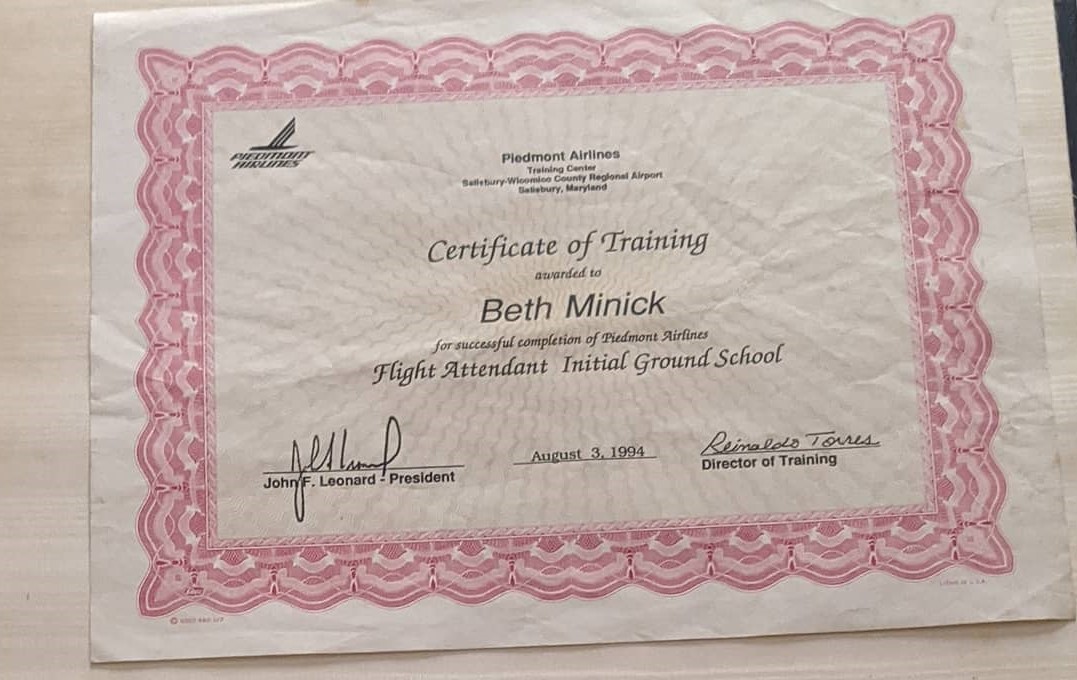
“I’m not getting married; I don’t have anyone to walk me down the aisle. Besides, who needs it? They leave you anyways.” Words to a fellow Flight Attendant in the middle of an aircraft swap. Often, during trips, we switched planes with other crews. On this day, I handed my craft over to a bride-to-be, gushing about her upcoming nuptials.
Pain isolates, as does grief. No one can understand the hole created in your life but you. While everyone carried on living, I was struggling to make it through my days. Dad died. God abandoned me. No one understood. I was all alone.
But then Pete.
A man of God, Pilot Pete had a reputation in the industry. While other men were cheating on their wives, Pete was sharing God’s love with all he met. Quiet, Pete never imposed his beliefs on others. Instead, he did the best he could to accept others as they were. Grace and kindness were his calling cards, not once seeing him angered. I hated flying with Pete. But as a rookie Flight Attendant, I had no choice.
Landing in Philadelphia late one night, the crew made its way to baggage claim for hotel pick-up. Me in front, Pete, and the First Officer behind me as we made our way down the escalator. Standing beside the tall panes of glass, looking into the dark night for our limo, Pete asked me a simple question.
“What’s wrong?”
“I’m mad at my family.” Was my brusque reply.
“Why?” Pete asked.
“My dad died,” I replied gruffly. Why of all things, I said these words I do not know. Pete represented God to me, and I wasn’t a fan.
Ever so quietly, Pete replied, “So did mine, when I was seven.”
In an instant, life changed. This man of God knew my pain. And, from my perspective, his was even worse. At least I had my dad until I was 16; he barely knew his. But he still loved God? How?
“God never promised us a rose garden.” Pete said, “He promised us life everlasting, free from condemnation through the death of His Son. God knows your pain. He has never left you; He is always with you. God wants you to turn back to Him and let Him be your comforter.”
“But how?”
“One day at a time. You don’t have to solve the world’s problems or change who you are. God loves you, just as you are. Let Him.”
Our ride to the hotel was silent. Lost in thought, Pete gave me something to think about that night. When we reached the hotel, tucked in my room, I opened the nightstand drawer. Just like the night in D.C., a Gideon Bible was nestled in its midst. Opening its pages, I began to read.
“Blessed are those who mourn, for they will be comforted.” (Matthew 5:4 NIV)
Life didn’t change overnight, but one day at a time, I found my way back to God. What I realized, even though I turned my back on God, he never turned His back on me. In my pain, I found someone who understood it. Because of Pete, I found my way back to God and His promises.
Eight years, many tears and self-destructive days later, I found comfort in the arms of my Father.
